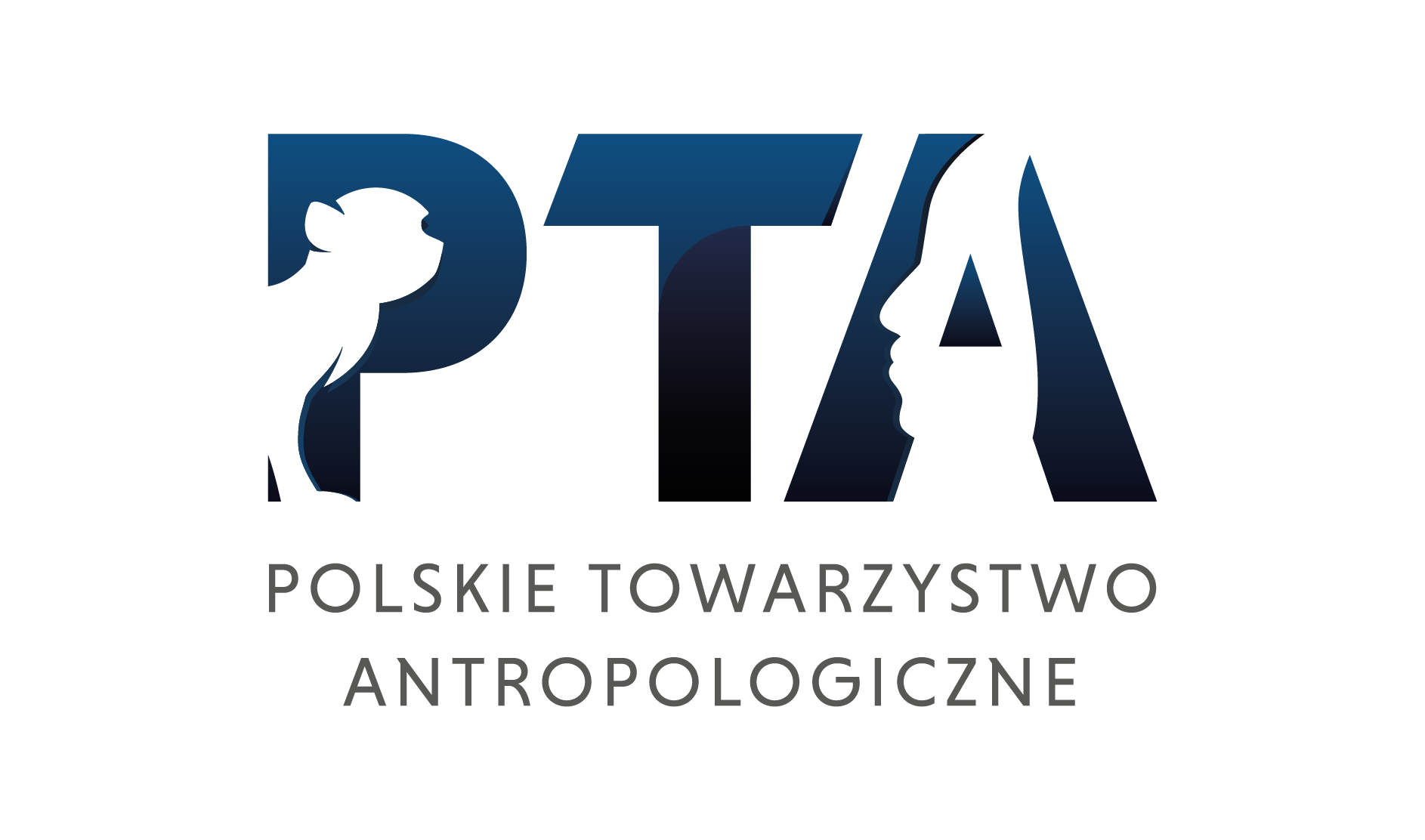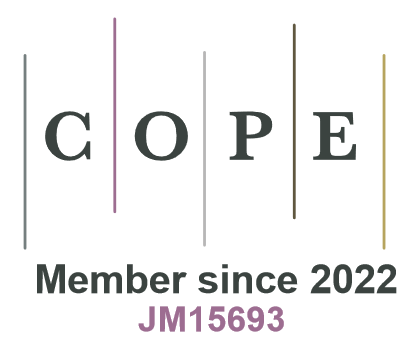When men appear smaller or larger than they really are: preliminary evidence that women are fooled by size illusions in attractiveness judgment tasks
DOI:
https://doi.org/10.2478/anre-2014-0023Keywords:
mate value, visual illusion, contrast illusion, mate preferences, Ebbinghaus illusionAbstract
In humans, studies have shown that contrast illusions can affect perceptions of facial attractiveness and dominance. In non-human animals, recent research found that contrast illusions of size positively affected male mate value. In humans, male height is a potentially important indicator of mate value, with women preferring men taller than themselves. We tested in two studies whether height contrast illusions could affect women’s perceptions of male height and mate value, particularly attractiveness, dominance, and muscularity. Using computer-generated images of men of different heights standing in groups of three, 104 female participants rated targets either surrounded by shorter, same height, or taller distractors in a within-subject design. The second experiment (N=80) replicated and extended the first by making the images more realistic and adding natural backgrounds, suggesting that when participants are given a visual anchor, in order to get a better sense of the absolute height of the targets, the effects remain. In both studies, results showed that, compared with same height distractors, male targets were rated as taller when surrounded by shorter distractors, and as shorter when surrounded by taller distractors. Additionally, attractiveness, dominance, and muscularity perceptions were affected in a similar manner, with most of the differences in these appraisals being mediated by the perceived height differences. Therefore, differently sized distractors affected the perceived height and mate value of the targets, which were in effect all of the same constant size. These findings indicate that context dependent effects could potentially influence attractiveness judgments. The same man might thus be perceived as more attractive when surrounded by men of similar or smaller height, as opposed to when surrounded by men who are taller.
Downloads
References
Bateson M, Healy SD. 2005. Comparative evaluation and its implications for mate choice. Trends Ecol Evol 20:659–64.
View in Google Scholar
Bateson M, Tovée MJ, George HR, Gouws A, Cornelissen PL. 2014. Humans are not fooled by size illusions in attractiveness judgements. Evol Hum Behav 35:133–39.
View in Google Scholar
Beigel HG. 1954. Body height in mate selection. J Soc Psychol 39:257–68.
View in Google Scholar
Blaker NM, Rompa I, Dessing IH, Vriend AF, Herschberg C, van Vugt M. 2013. The height leadership advantage in men and women: testing evolutionary psychology predictions about the perceptions of tall leaders. Group Process Intergroup Relat 16:17–27.
View in Google Scholar
Buss DM. 1994. The evolution of desire: Strategies of human mating. New York: Basic Books.
View in Google Scholar
Callander S, Jennions MD, Backwell PR. 2011. Female choice over short and long distances: neighbour effects. Behav Ecol Sociobiol 65:2071–78.
View in Google Scholar
Callander S, Hayes CL, Jennions MD, Backwell PR. 2012. Experimental evidence that immediate neighbors affect male attractiveness. Behav Ecol 24:730–33.
View in Google Scholar
Cotton S, Small J, Pomiankowski A. 2006. Sexual selection and condition-dependent mate preferences. Curr Biol 16:R755–R765.
View in Google Scholar
Courtiol A, Raymond M, Godelle B, Ferdy J-B. 2010. Mate choice and human stature: homogamy as a unified framework for understanding mating preferences. Evolution 64:2189–203.
View in Google Scholar
Crossley KL, Cornelissen PL, Tovée MJ. 2012. What is an attractive body? Using an interactive 3D program to create the ideal body for you and your partner. PLOS ONE 7:e50601.
View in Google Scholar
Currie TE, Little AC. 2009. The relative importance of the face and body in judgments of human physical attractiveness. Evol Hum Behav 30:409–16.
View in Google Scholar
Dannenmaier WD, Thumin FJ. 1964. Authority status as a factor in perceptual distortion of sizes. J Soc Psychol 63:361–65.
View in Google Scholar
DAZ Studio. 2013. DAZ Studio 4.6. DAZ Productions, Inc. Salt Lake City, UT. Available at http://www.daz3d.com/ [Accessed 8 October 2014].
View in Google Scholar
Duguid MM, Goncalo JA. 2012. Living large: the powerful overestimate their own height. Psychol Sci 23:36–40.
View in Google Scholar
Ebbinghaus H. 1902. Grundzüge der Psychologie. Leipzig: Verlag von Veit & Co.
View in Google Scholar
Fairbairn DJ. 1997. Allometry for sexual size dimorphism: pattern and process in the coevolution of body size in males and females. Annu Rev Ecol Syst 28:659–87.
View in Google Scholar
Fessler DM, Holbrook C, Snyder JK. 2012. Weapons make the man (larger): formidability is represented as size and strength in humans. PLOS ONE 7(4):e32751.
View in Google Scholar
Fink B, Neave N, Brewer G, Pawlowski B. 2007. Variable preferences for sexual dimorphism in stature (SDS): further evidence for an adjustment in relation to own height. Pers Individ Differ 43:2249–57.
View in Google Scholar
Frederick DA, Haselton MG. 2007. Why is muscularity sexy? Tests of the fitness indicator hypothesis. Pers Soc Psychol Bull 33:1167–83.
View in Google Scholar
Galton F. 1886. Regression towards mediocrity in hereditary stature. J Anthropol Inst G Br Irel 15:246–63.
View in Google Scholar
Gasparini C, Serena G, Pilastro A. 2013. Do unattractive friends make you look better? Context-dependent male mating preferences in the guppy. Proc R Soc Lond B Biol Sci 280:20123072.
View in Google Scholar
Gillis JS, Avis WE. 1980. The male-taller norm in mate selection. Pers Soc Psychol Bull 6:396–401.
View in Google Scholar
Haselton MG, Buss DM. 2000. Error management theory: a new perspective on biases in cross-sex mind reading. J Pers Soc Psychol 78:81–91.
View in Google Scholar
Haselton MG, Nettle D, Andrews PW. 2005. The evolution of cognitive bias. In: DM Buss, editor. The handbook of evolutionary psychology. Hoboken, NJ: John Wiley & Sons Inc. 724–46.
View in Google Scholar
Henrich J, Gil-White FJ. 2001. The evolution of prestige: freely conferred deference as a mechanism for enhancing the benefits of cultural transmission. Evol Hum Behav 22:165–96.
View in Google Scholar
Henrich J, Heine SJ, Norenzayan A. 2010. The weirdest people in the world. Behav Brain Sci 33:61–83.
View in Google Scholar
Isaac JL. 2005. Potential causes and life history consequences of sexual size dimorphism in mammals. Mammal Rev 35:101–15.
View in Google Scholar
Jiang Y, Bolnick DI, Kirkpatrick M. 2013. Assortative mating in animals. Am Nat 181:E125-E138.
View in Google Scholar
Johnstone RA, Reynolds JD, Deutsch JC. 1996. Mutual mate choice and sex differences in choosiness. Evolution 50:1382–91.
View in Google Scholar
Kelley LA, Kelley JL. 2014. Animal visual illusion and confusion: the importance of a perceptual perspective. Behav Ecol 25:450–63.
View in Google Scholar
Kuznetsova A, Brockhoff PB. 2012. Package “lmerTest” [Internet]. Available at http://cran.r-project.org/web/packages/lmerTest/index.html [Accessed 3 October 2014].
View in Google Scholar
Little AC, Caldwell CA, Jones BC, DeBruine LM. 2011. Effects of partner beauty on opposite-sex attractiveness judgments. Arch Sex Behav 40:1119–27.
View in Google Scholar
Marsh AA, Yu HH, Schechter JC, Blair RJR. 2009. Larger than life: humans’ nonverbal status cues alter perceived size. PLOS ONE 4(5):e5707.
View in Google Scholar
Mayers A. 2013. Introduction to statistics and SPSS in psychology. London: Pearson.
View in Google Scholar
Miller G. 2000. The mating mind: how sexual selection shaped the evolution of human nature. New York, Anchor Books.
View in Google Scholar
Montepare JM. 1995. The impact of variations in height on young children’s impressions of men and women. J Nonverbal Behav 19:31–47.
View in Google Scholar
Morris PH, White J, Morrison ER, Fisher K. 2013. High heels as supernormal stimuli: how wearing high heels affects judgements of female attractiveness. Evol Hum Behav 34:176–81.
View in Google Scholar
Nagel L, Schluter D. 1998. Body size, natural selection, and speciation in sticklebacks. Evolution 52:209–18.
View in Google Scholar
Pawlowski B. 2003. Variable preferences for sexual dimorphism in height as a strategy for increasing the pool of potential partners in humans. Proc R Soc Lond B Biol Sci 270:709–12.
View in Google Scholar
Pearson K. 1895. Contributions to the mathematical theory of evolution. III. Regression, heredity, and panmixia. Proc R Soc Lond 59:69–71.
View in Google Scholar
Pearson K, Lee A. 1903. On the laws of inheritance in man: I. Inheritance of physical characters. Biometrika 2:357–462.
View in Google Scholar
Pierce CA. 1996. Body height and romantic attraction: a meta-analytic test of the male-taller norm. Soc Behav Personal Int J 24:143–49.
View in Google Scholar
Preacher KJ, Leonardelli GJ. 2003. Calculation for the Sobel test. An interactive calculation tool for mediation tests. Available at http://quantpsy.org/sobel/sobel.htm [Accessed 8 October 2014].
View in Google Scholar
R Development Core Team. 2008. R: a language and environment for statistical computing. R Foundation for Statistical Computing, Vienna, Austria. Available at http://www.R-project.org [Accessed 8 October 2014].
View in Google Scholar
Re DE, Lefevre CE, DeBruine LM, Jones BC, Perrett DI. 2014. Impressions of dominance are made relative to others in the visual environment. Evol Psychol 12:251–63.
View in Google Scholar
Re DE, Perrett DI. 2012. Concordant preferences for actual height and facial cues to height. Pers Individ Dif 53:901-06.
View in Google Scholar
Sadalla EK, Kenrick DT, Vershure B. 1987. Dominance and heterosexual attraction. J Pers Soc Psychol 52:730–38.
View in Google Scholar
Salska I, Frederick DA, Pawlowski B, Reilly AH, Laird KT, Rudd NA. 2008. Conditional mate preferences: factors influencing preferences for height. Pers Individ Dif 44:203–15.
View in Google Scholar
Schönbeck Y, Talma H, van Dommelen P, Bakker B, Buitendijk SE, HiraSing RA, et al. 2013. The world’s tallest nation has stopped growing taller: the height of Dutch children from 1955 to 2009. Pediatr Res 73:371–77.
View in Google Scholar
Sear R. 2010. Height and reproductive success. In: UJ Frey, C Störmer, KP Willführ, editors. Homo Novus – a human without illusions. New York: Springer. 127–43.
View in Google Scholar
Sear R, Marlowe FW. 2009. How universal are human mate choices? Size does not matter when Hadza foragers are choosing a mate. Biol Lett 5:606-09.
View in Google Scholar
Sell A, Cosmides L, Tooby J, Sznycer D, von Rueden C, Gurven M. 2009. Human adaptations for the visual assessment of strength and Fighting ability from the body and face. Proc R Soc Lond B Biol Sci 276:575–84.
View in Google Scholar
Shepperd JA, Strathman AJ. 1989. Attractiveness and height: the role of stature in dating preference, frequency of dating, and perceptions of attractiveness. Pers Soc Psychol Bull 15:617–27.
View in Google Scholar
Silventoinen K. 2003. Determinants of variation in adult body height. J Biosoc Sci 35:263–85.
View in Google Scholar
Silventoinen K, Magnusson PKE, Tynelius P, Kaprio J, Rasmussen F. 2008. Heritability of body size and muscle strength in young adulthood: a study of one million Swedish men. Genet Epidemiol 32:341–49.
View in Google Scholar
Silventoinen K, Sammalisto S, Perola M, Boomsma DI, Cornes BK, Davis C, et al. 2003. Heritability of adult body height: a comparative study of twin cohorts in eight countries. Twin Res 6:399–408.
View in Google Scholar
Sorokowski P, Butovskaya ML. 2012. Height preferences in humans may not be universal: evidence from the Datoga people of Tanzania. Body Image 9:510–16.
View in Google Scholar
Sorokowski P, Sorokowska A, Fink B, Mberira M. 2011. Variable preferences for sexual dimorphism in stature (SDS) might not be universal: data from a semi-nomad population (Himba) in Namibia. J Cross Cult Psychol 43:32–37.
View in Google Scholar
Spuhler JN. 1982. Assortative mating with respect to physical characteristics. Biodemogr Soc Biol 29:53–66.
View in Google Scholar
Stulp G, Buunk AP, Kurzban R, Verhulst S. 2013a. The height of choosiness: mutual mate choice for stature results in suboptimal pair formation for both sexes. Anim Behav 86:37–46.
View in Google Scholar
Stulp G, Buunk AP, Pollet TV. 2013b. Women want taller men more than men want shorter women. Pers Individ Dif 54:877–83.
View in Google Scholar
Stulp G, Buunk AP, Pollet TV, Nettle D, Verhulst S. 2013c. Are human mating preferences with respect to height reflected in actual pairings? PLOS ONE 8(1):e54186.
View in Google Scholar
Stulp G, Buunk AP, Verhulst S, Pollet TV. submitted. Human height is positively related to interpersonal dominance in dyadic interactions. PLOS ONE.
View in Google Scholar
Stulp G, Kuijper B, Buunk AP, Pollet TV, Verhulst S. 2012a. Intralocus sexual conflict over human height. Biol Letters 8:976–78.
View in Google Scholar
Stulp G, Mills M, Pollet TV, Barrett L. 2014. Non-linear associations between stature and mate choice characteristics for American men and their spouses. Am J Hum Biol 26:530–37.
View in Google Scholar
Stulp G, Pollet TV, Verhulst S, Buunk AP. 2012b. A curvilinear effect of height on reproductive success in human males. Behav Ecol Sociobiol 66:375–84.
View in Google Scholar
Stulp G, Verhulst S, Pollet TV, Buunk AP. 2012c. The effect of female height on reproductive success is negative in western populations, but more variable in non western populations. Am J Hum Biol 24:486–94.
View in Google Scholar
Sugiyama L. 2005. Physical attractiveness in adaptationist perspective. In: DM Buss, editor. The handbook of evolutionary psychology. Hoboken, NJ: John Wiley & Sons Inc. 292–334.
View in Google Scholar
Swami V, Furnham A, Balakumar N, Williams C, Canaway K, Stanistreet D. 2008. Factors influencing preferences for height: a replication and extension. Pers Individ Dif 45:395–400.
View in Google Scholar
Townsend JM, Levy GD. 1990. Effects of potential partners’ physical attractiveness and socioeconomic status on sexuality and partner selection. Arch Sex Behav 19:149–64.
View in Google Scholar
Valentova JV, Stulp G, Třebický V, Havlíček J. 2014. Preferred and actual relative height among homosexual male partners vary with preferred dominance and sex role. PLOS ONE 9:e86534.
View in Google Scholar
Visscher PM, Medland SE, Ferreira MAR, Morley KI, Zhu G, Cornes BK, et al. 2006. Assumption-free estimation of heritability from genome-wide identity-by-descent sharing between full siblings. PLoS Genet 2:e41.
View in Google Scholar
Vukovic J, Feinberg DR, Jones BC, DeBruine LM, Welling LLM, Little AC, et al. 2008. Self-rated attractiveness predicts individual differences in women’s preferences for masculine men’s voices. Pers Individ Dif 45:451–56.
View in Google Scholar
Wilson PR. 1968. Perceptual distortion of height as a function of ascribed academic status. J Soc Psychol 74:97–102.
View in Google Scholar
Wells JC. 2012. Sexual dimorphism in body composition across human populations: associations with climate and proxies for short and long term energy supply. Am J Hum Biol 24:411–19.
View in Google Scholar
Downloads
Published
How to Cite
Issue
Section
License

This work is licensed under a Creative Commons Attribution-NonCommercial-NoDerivatives 4.0 International License.








